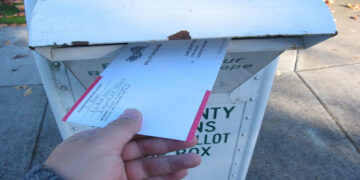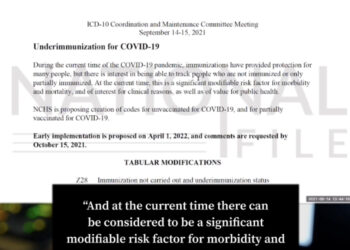Last Updated on September 16, 2022
A Delaware judge ruled Wednesday that a new vote-by-mail law that was enacted earlier this year is unconstitutional. The judge further ruled that vote-by-mail will not be permitted in the upcoming November elections.
Vice Chancellor Nathan Cook ruled that the law, which Delaware Democrats rammed through the General Assembly in less than three weeks this past June, violates a provision in Delaware’s constitution that lays out specific circumstances under which an individual is allowed to cast an absentee ballot.
“Our Supreme Court and this court have consistently stated that those circumstances are exhaustive,” Cook wrote. “Therefore, as a trial judge, I am compelled by precedent to conclude that the vote-by-mail statute’s attempt to expand absentee voting … must be rejected.”
While Cook ruled vote-by-mail as unconstitutional, he did opt to uphold Delaware’s new same-day voter registration law.
Democrat lawmakers introduced the vote-by-mail bill earlier this year after failing to get Republicans on board with amending the state’s constitution. A constitutional amendment requires a two-thirds vote by each chamber in two consecutive General Assemblies.
The first leg of a constitutional amendment to eliminate limitations on absentee balloting was passed in the legislature in 2020. It was initially defeated in the Democrat-controlled legislature, but the second leg failed to gain the necessary majority to pass in the Democrat-controlled house.
Julianne Murray, an attorney for plaintiffs challenging the vote-by-mail legislation, praised Cook’s knowledge of the state’s constitution in making his decision. “He started on the Constitutional Convention of 1897 and worked his way through,” said Murray, who is the Republican nominee for attorney general in November.
Jane Brady, a retired judge and former Delaware attorney general who also represented plaintiffs in the lawsuit, said mail-in voting “does not comport with the constitution.”
“I believe that the legislature has known from day one that they needed a constitutional amendment to do this,” Brady said.
Wednesday’s ruling comes two years after a different Chancery Court judge rejected a challenge by the state Republican Party to the constitutionality of a law allowing universal voting by mail in the 2020 election, the Associated Press reported. Vice Chancellor Sam Glasscock III said in that ruling that the General Assembly’s decision to use its emergency powers to declare that voting by mail was necessary to protect public health and ensure continuity of governmental operations during the coronavirus epidemic was not “clearly erroneous.”
In passing that legislation, Democrats argued that mail-in-voting was “necessary and proper” during the pandemic, and that adhering to the state constitution’s limits on absentee voting “would be impractical.”



















